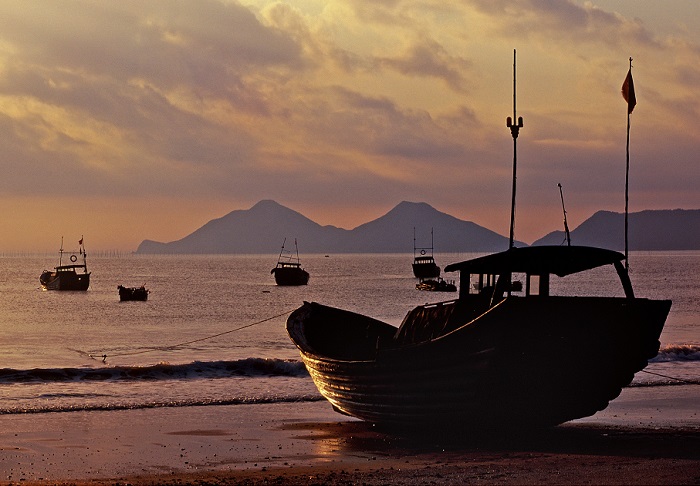Translated By Andrew Yang
Several times the blue ocean has turned into mulberry fields.
Only the big void remains crystal clear.
Those who have arrived must no longer cling to their raft.
But those who have not yet do need the ferry.
— Zen Master Guishan Zhengyuan (781-865)
Fellow Buddhists: you know that the value of life is not limited to wealth, fame, career, or even family. The greatest meaning of life, indeed, is in obtaining wisdom to realize the ultimate truth, and help other sentient beings as well as ourselves ferry across the sea of transmigration over life and death.
All sentient beings on this shore suffer from impermanence and a lack of intrinsic existence. In contrast, all on the other shore, where Buddha resides, however, live in sheer, constant joy. We must catch Buddha’s ship of prajna in time, so we could sail from this shore of impermanence and reach the other shore, where there is no suffering but eternal joy and freedom. Don’t waste any of your life!
“This shore” is a place we and other sentient beings are obsessed with, where there is the cycle of rebirth and suffering because of karma. We must rely on prajna to help us identify our delusions and purify our conduct before we set out to reach the other shore. “The other shore”, the realm of Buddha, is where the enlightened ones live beyond transmigration without suffering and in the constant bliss of Nirvana.
Some may ask, “What is wrong with this world?”
Buddhist scriptures call this world “saha”. In Sanskrit it means “that which can be tolerated”, that is, a world full of pain, where we endure all kinds of suffering, such as life and death, sickness, aging, love and separation, or resentment and bitterness. We get used to it, however, so we are in pain but are not conscious of it. Yes, there is happiness, but in the end happiness is brief and overwhelmed by impermanence. The Lotus Sutra says, “The Three Realms are unsafe, like a fire house and full of suffering.” Since there are always worries, adversities, disease, aging and death in human life, what joy could there be?
Thus, some reckon that since birth, death, sickness and aging are all inevitable, why not enjoy life while I can? They pursue wealth by making money and spending it with a vengeance, and carnal pleasures are what they are consumed with. Their eyes love to see beauty, their ears go for good music, their nose desires fragrance, their tongue revels in fine tastes, their body enjoys being pampered, and their mind adores pleasurable joy.
Ladies and Gentlemen, if you get hung up on such sensual pleasures, the fact is they lead to endless suffering. Imagine when you are obsessed with an attractive woman and get impulsive, you may likely commit a sinful act. When you face criticism, you could feel upset. When you taste something unpalatable, you are apt to complain. When your mind nurses greed, anger or delusion, you could act it out in degrading behaviour. Consequently, what pleasures any of the six root sensory organs produce are short-lived, and in the long run they are consistently harmful.
In human history, sages such as Confucius and Laozi from China, and Thales of Miletus, Socrates and Plato among ancient Greek philosophers all did extensive analyses of human life and found one thing in common, that happiness is not attainable through pursuit of material gain or pleasure. Rather, happiness comes from the individual’s inner world, not from anything outward such as fame and fortune, or power and glory, nor is it triggered by any of the six root senses. Termed “prajna” by Buddha, happiness is ultimately an inspired form of wisdom from within.
“Prajna” is the truth, and “paramita” the approach. The phrase “prajna paramita” means that as long as you always aim for prajna in your practice, you may cross the ocean of transmigration from this shore of confusion and ignorance to reach the other shore of liberation and enlightenment.

